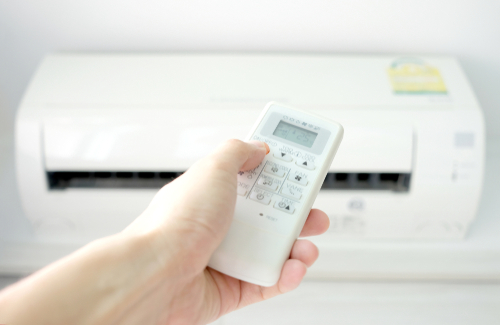
Casement Aircon VS Split Aircon
September 14, 2019
How To Choose The Right Aircon For My HDB?
September 14, 2019What Causes Sour Smell In Aircon?

If your air conditioner is starting to smell like dead fish all of a sudden, you are not alone. This problem is not a new one; rather it has been around ever since people have been using air conditioners in their homes. Before it can be figured out how to make that unpleasant odor go away, it is important to understand what causes it. The origin of that sour smell is actually bacteria, fungus and other microbes growing inside the air conditioner. If the environment inside an air conditioning system becomes excessively moisture-laden, it can prove to be very conducive to the growth of organisms such as these.
A sour smell coming from an air conditioner is usually a sign that it is suffering from an issue that most likely involves its condensation removal system. During the cooling process that takes place inside an air conditioner, a byproduct is prouced that is known as conensation. If condensation is not properly drained, conditions that are favor the growth of bacteria and mold inside the system are created. However, the source of the sour odor can vary, and the good thing is that there are a couple of things that can be done to eliminate its source.
Condensation From Dehumidifying
All air conditioners function in the same way. Air is pulled indoor through a filter and that is blown across cold copper coils that contain refrigerant, so the air is cooled. The humidity in the air contain condensation that is accumulated by those copper coils as a result of which the temperature of the air is reduced. The condensation is then drained into a condensate pan so that it can be disposed off, while the air conditioner keeps returning cold air into the house. The water in the condensate pan is pumped out, usually outside the house into the soil or even into a floor rain, by a condensate pump that is attached to the pan.
Bad Filter
A myriad of problems can occur for an air conditioning system as a result if its filter is clogged or too old. If the air conditioner filter does not function properly, the air conditioner will not be able to pull in enough air that can cycle through the system. As a result of this, the air insid the air conitioning systm becomes increasing humid to such an extent that everything inside becomes damp, creating favorable conditions for the growth of mildew and mold. To prevent sour smell in the air conditioner emanating a result of mildew and/or mold growth, it should be made sure that the air filter i workingproperly. The filter should be cleaned or replaced at the intervals that are recommended in the user manual of the unit.
Condensate Pan
If an air conditioner has been running without a filter for quite some time or if the filter has not been frequently serviced, this can result in a clogged condensate pan. This pan is usually located directly below the refrigerant coils in the air handler, where it collects condensate from the coils and drains it out. The pan has a hole in the center that can get clogged by hair and/or other debris, as a result of which the water gets backed up and a foul, sour odor arises from that water. Therefore, the pan should be wiped out, and a paper clip or a piece of wire should be used to clean out the pan as well as a couple of inches of the drain opening.
Mold In Ducts
Mildew and mold can also grow inside the ducts if there has been a moisture problem within an air conditioner for a considerable amount of time. Such a can turn out to be potentially dangerous because certain mildew and molds can actually damage the indoor air quality inside the house. If mildew and mold in the ducts is suspected to be the source of the sour smell, then they should be replaced right away, and a mold specialist should be contacted for more information on how the risk of inhalation can be reduced.
Even though the sour smell coming from the air conditioner is a common problem it is not unavoidable. In fact, regular maintenance of the air conditioner, and perhaps the use of the correct air purifier can prevent the growth of mildew and mold, so that the air conditioner never emanates a sour smell ever again.



